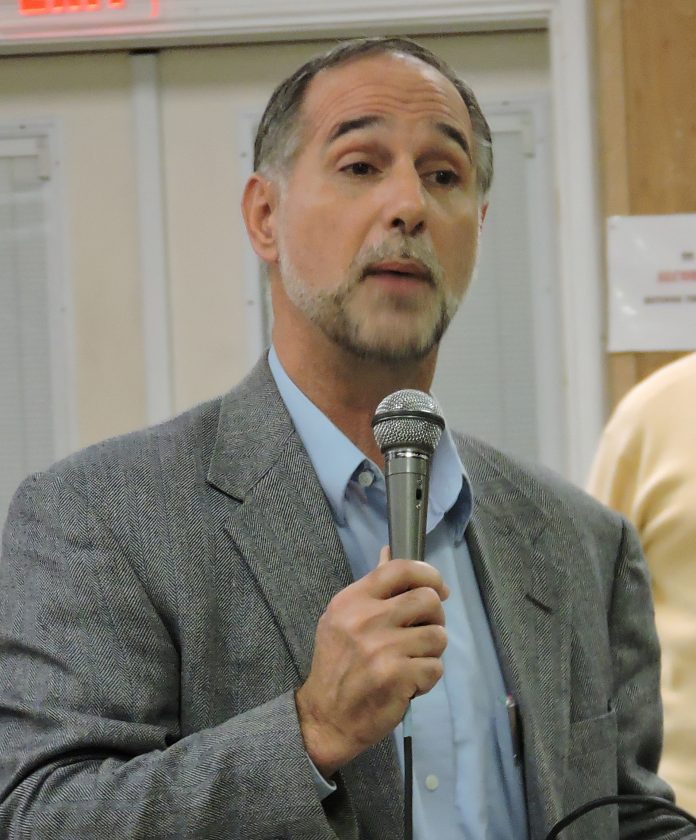Mixed Views on Next Steps for Roman Catholic Diocese of Wheeling-charleston
By Alex Meyer
Opinions are mixed about what should happen to the Roman Catholic Diocese of Wheeling-Charleston after new revelations about Michael J. Bransfield’s conduct while bishop here were made public this week. Some called for the diocese to reform from within while others asked the West Virginia Attorney General’s Office to take further action, but all agreed: something needs to change. On Wednesday, Archbishop William E. Lori admitted in a letter that the diocese found “credible” accounts of sexual harassment from Bransfield and that he further engaged in a pattern of “excessive and inappropriate” spending during his tenure. Judy Jones, midwest regional leader of the Survivors Network of those Abused by Priests, or SNAP, said she wasn’t surprised by the latest developments regarding Bransfield. “What is so sickening is how this went on for so long and people knew about it. Bransfield kept getting away with it,” Jones said. “We at SNAP applaud the brave victims for coming forward and getting (his) wrongdoings exposed and stopped.” Jones said the problems with the diocese and the church illuminated by Bransfield’s misconduct need to be “fixed from the outside” by law enforcement. “The church officials can’t police themselves,” she said. “They can’t fix the problems themselves. It’s not going to change.” According to the letter from Lori, the diocese heard several credible accounts from individuals who served under Bransfield as adults and faced sexual harassment from him, including “a consistent pattern of sexual innuendo and overt suggestive comments and actions.” SNAP is a peer network of survivors that provides support and services to to other survivors, Jones said, and it’s not uncommon for her organization to aid to people who faced abuse as adults, not just as children. Canon lawyer Philip Gray, president of the St. Joseph Foundation, similarly said he wasn’t surprised by this week’s news. Gray pushed to save Bishop Donahue High School in 2017. “The financial misconduct within the church is a growing issue in that it’s growing in awareness even though it’s an old issue,” Gray said. “I think we’re going to be seeing more of that identified in the days to come.” Gray said he encourages Catholics to set up trust funds in support of the church so that their money isn’t operated by bishops or priests. “I believe the faithful have an obligation to support the church but don’t have obligation to entrust it to the pastors of the church,” he said. “I encourage people to take back control of their money. Once you do that, you will take a large swath of control so that pastors of church can be pastors of the church.” Gray said he believes that positive change will come if the church hierarchy follows its own ecclesiastical rules, or the “canon law” of the church. “If the church simply followed its own rules, we would not have as many of these issues as we have,” Gray said. “Bishops need to fill their obligations, and not wait until people are hurt or lawsuits are filed.” In March, the West Virginia Attorney General’s Office filed a consumer protection lawsuit against the diocese, alleging that the diocese and its bishops knowingly employed pedophiles and failed to conduct adequate background checks. Differing slightly from Gray, Kim Smolik, CEO of Leadership Roundtable, said that the Catholic Church needs to reform its rules and its culture in order to fix systemic problems. Leadership Roundtable is a nonprofit dedicated to improving the administration of the church. “The news is further evidence that the current leadership culture in the Catholic Church lacks sufficient checks and balances and allows for an abuse of power,” Smolik said. “It deepens our resolve at Leadership Roundtable to work with fellow Catholics to transform the culture of leadership in the Church towards one in which laity and clergy are co-responsible, utilizing new governance structures based on best practices.” Smolik said she’s grateful that Lori oversaw the diocese’s investigation of Bransfield and reported results to the people, but said the full findings should be made public “to provide healing, restore trust and establish a new culture of leadership and best practices.” Among Leadership Roundtable suggestions for new best practices are forming a new, transparent governance structure with checks and balances and oversight and offering full financial transparency. Meanwhile, the Attorney General’s office is separately investigating the diocese and has obtained documents and conducted interviews on the matter, spokesperson Mary Stortstrom said. This week, Attorney General Patrick Morrisey called for the diocese to release the full report of its investigation of Bransfield. Notably, the office hasn’t received a full copy of that report, Stortstrom said. “Ultimately, the attorney general would like to see meaningful changes that would allow the church to move forward in a manner that restores public trust,” Stortstrom said.
|
.
Any original material on these pages is copyright © BishopAccountability.org 2004. Reproduce freely with attribution.
